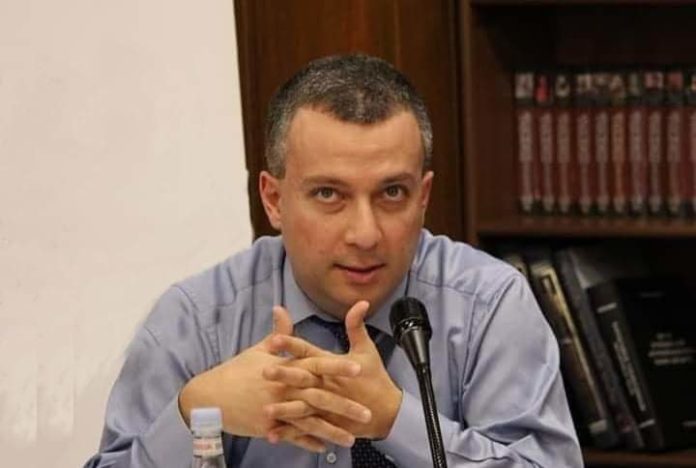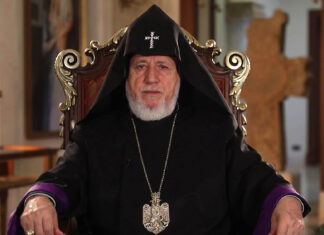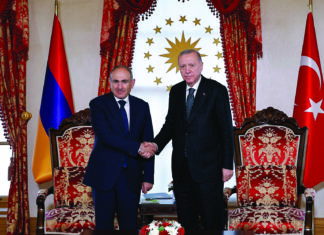The last month was marked with extensive developments around Armenia – Azerbaijan relations and the Nagorno Karabakh conflict. On September 27, the Secretary of the Armenian security council met with President Aliyev’s top foreign policy aide in the White House. According to Armen Grigoryan, sides reached several agreements during that meeting – to sign a peace treaty and implement delimitation of the Armenia – Azerbaijan border by the end of 2022 and launch international mechanism for Azerbaijan – Nagorno Karabakh negotiations. The possibility of signing a peace treaty and delimitating the Armenia – Azerbaijan border within less than 90 days sounds not realistic. However, the key message of the White House meeting was the significant increase of the US involvement in the Armenia – Azerbaijan negotiation process. On October 6, Armenia and Azerbaijan agreed to recognize each other’s territorial integrity based on the Alma-Ata declaration of December 1991 and to deploy a European Union (EU) civilian mission along Armenia – Azerbaijan borders. A week later, during the meeting with his Armenian counterpart, the Russian foreign minister Lavrov stated that the Collective Security Treaty Organization (CSTO) was ready to send its observers into Armenia. The only missing link was the initiative by Armenia to convene an extraordinary session of the collective security council to adopt a relative decision. An advance team of European Union monitors arrived in Armenia on October 14, while a full-scale mission comprised of 40 observers started its activities on October 24. Simultaneously, following the invitation of the Armenian government, the Organization for Security and Cooperation in Europe (OSCE) sent a week-long needs assessment team to the country, which arrived on October 21.
Azerbaijan, in its turn, continues its information campaign to prepare a new attack against Armenia. It is challenging to assess if the final decision is made in Baku for another aggression. However, on a daily basis, Azerbaijan states about fire toward of positions of its armed forces. A similar information campaign occurred before the August 1 and September 13 Azerbaijani attacks. Simultaneously, Azerbaijan publicly expresses its resentment about deploying international missions in Armenia. Baku’s position is clear-cut. Azerbaijan wants to legalize the results of the 2020 war through the signature of a so-called “peace treaty” with Armenia, which will satisfy all Azerbaijani demands and violate all Armenian vital national interests. As no government will be happy to sign such a deal, Azerbaijan hopes to use force or threat of force to compel Armenia to sign that agreement. It will transform the Nagorno Karabakh conflict into an issue of protecting the rights of Azerbaijani citizens of Armenian origin, thus irrevocably depriving Nagorno Karabakh of any status. As the arrival of observers in Armenia potentially decrease the possibility of the new Azerbaijani military attack, the discomfort of Azerbaijan is understandable, as they may lose the primary pressure tool against Armenia.
Meanwhile, the presence of observers decreases the probability but does not prevent new Azerbaijani aggression. The EU observers’ task is to monitor the situation and report to Brussels, nothing more. Their reports will not automatically trigger any immediate and tangible responses from the EU, such as economic sanctions against Azerbaijan. Thus, Armenia should know it does not have the luxury to think new aggression by Azerbaijan is entirely off the agenda now.
Meanwhile, as the de facto Russia–West war continues to rage, the arrival of the EU observers into the CSTO member state can create an impression that Armenia–Azerbaijan relations and the Nagorno Karabakh conflict eventually become another Russia–West battlefield. If this perception prevails in Russia, Iran, or the West, it may have catastrophic implications for Armenia. Azerbaijan will do everything possible to depict Armenia as a traitor in the eyes of Russia, which invited Russia’s enemies into the Kremlin’s backyard while rejecting CSTO’s offer to deploy its monitors. Iran always opposes any foreign presence in the South Caucasus, while Tehran does not view the Russian military as a foreign force. In this context, the deployment of Western observers in Armenia may also negatively impact Armenia–Iran relations. The Iranian foreign minister recently visited Armenia to open a consulate general in Kapan. During his meetings with Armenian officials, he delivered two direct messages: Iran would not allow Azerbaijani and Turkish control over Syunik, and Iran was against any international presence in the region.
Iran is against the potential increase of Azerbaijani and Turkish influence in Armenia. It simultaneously is concerned about possible changes in Armenian foreign policy from pro-Russian to pro-Western direction. The significant increase of the US involvement in Armenian–Azerbaijani relations and the frequent visits of high-level American officials to Yerevan make Iran nervous. Tehran understands that if Russia is pushed out from Nagorno Karabakh and Armenia, the vacuum will be filled by Turkey and strategically by the US.
In this context, the signature of the Armenia–Azerbaijan peace treaty on Azerbaijani terms with zero mentions of Nagorno Karabakh will pave the way for the withdrawal of Russian peacekeepers from Nagorno Karabakh after November 2025. This scenario cannot satisfy either Russia or Iran. Meanwhile, Azerbaijan sends a clear message that if Armenia seeks to postpone the peace treaty signing for whatever reasons, a new large-scale Azerbaijani aggression against Armenia or Nagorno Karabakh is imminent.








